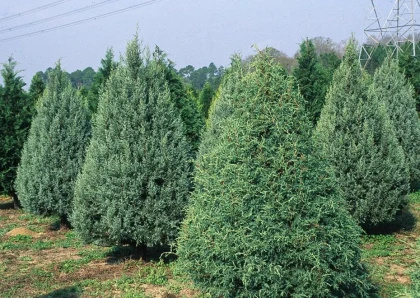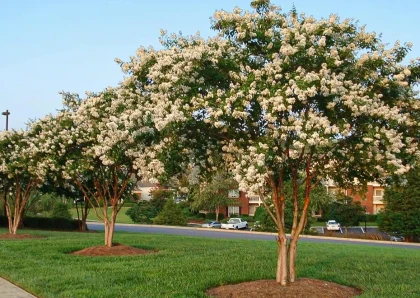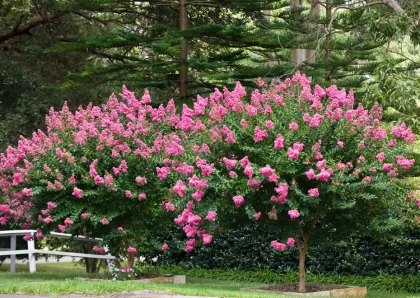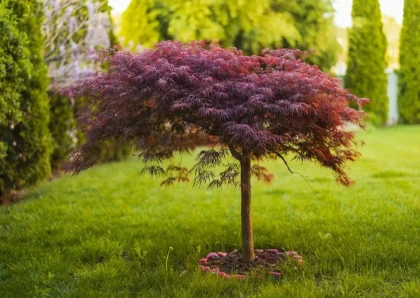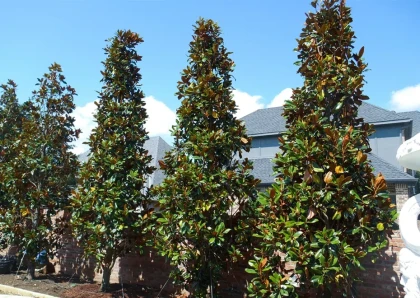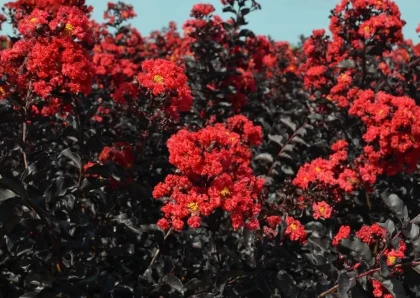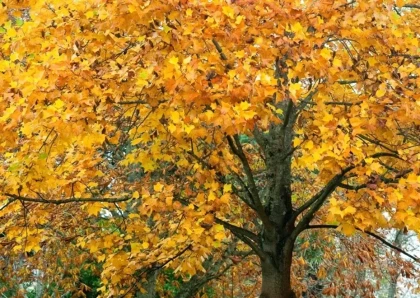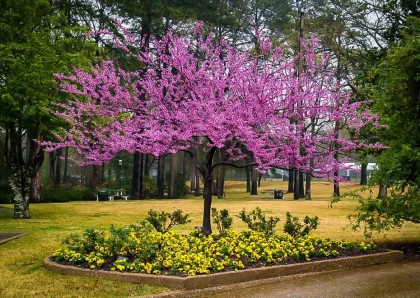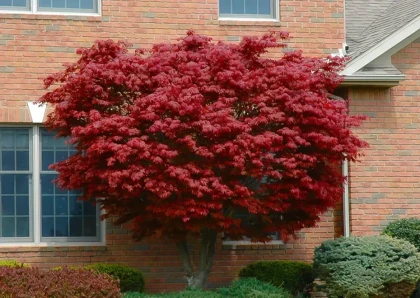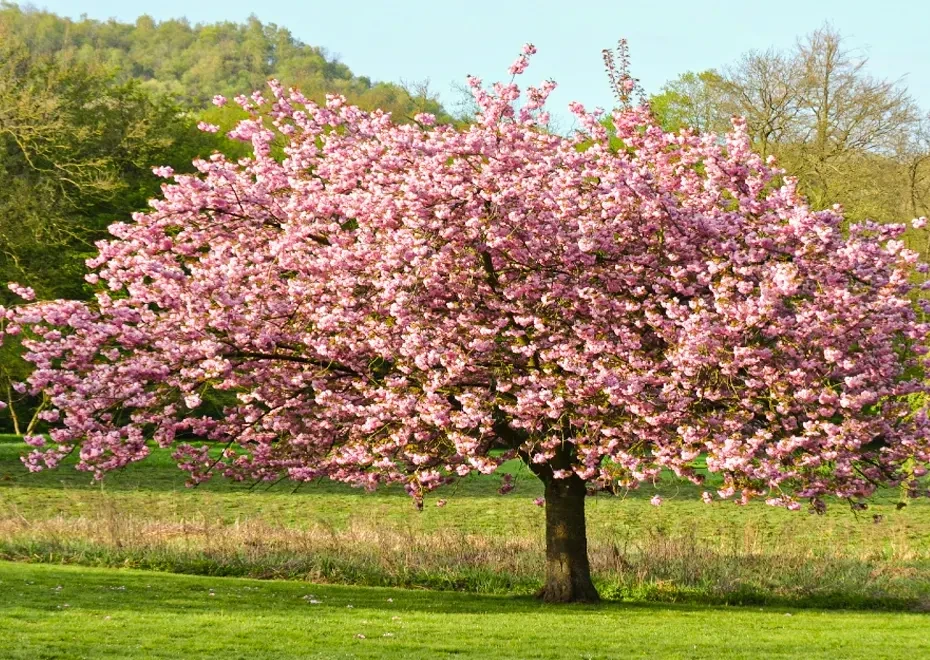
Alexandrina Magnolia Tree
Overview
History of the Alexandrina Magnolia Tree
The Alexandrina Magnolia, scientifically known as Magnolia x soulangeana 'Alexandrina', is a hybrid tree that originated in France in the early 19th century. It is a result of crossing Magnolia denudata and Magnolia liliiflora, combining their best traits to create a captivating and resilient species.
Detailed Description of the Alexandrina Magnolia Tree
The Alexandrina Magnolia is a deciduous tree known for its stunning, tulip-shaped flowers. It typically grows up to 20-25 feet in height, forming a broad and rounded crown. The large, fragrant flowers appear in early spring, before the leaves emerge, and display a beautiful combination of purple-pink petals with white interiors. The tree's glossy, dark green leaves provide an attractive backdrop throughout the growing season.
Types of Alexandrina Magnolia Trees
While the Alexandrina Magnolia itself is a specific hybrid cultivar, within the broader category of Magnolia soulangeana, there are several other cultivars available, each with its unique characteristics. Some popular cultivars include 'Rustica Rubra' with deep red flowers, 'Lennei' with dark purple flowers, and 'Alba Superba' with pure white flowers.
Importance of the Alexandrina Magnolia Tree
The Alexandrina Magnolia holds significant importance as an ornamental tree. Its striking flowers create a focal point in gardens, parks, and landscapes, attracting attention and admiration. Additionally, the tree provides a source of nectar for bees and other pollinators, supporting biodiversity and ecological balance.
How to Care for the Alexandrina Magnolia Tree
To ensure the health and vitality of your Alexandrina Magnolia tree, follow these care guidelines:
- Plant in well-drained soil with good organic content.
- Provide the tree with partial shade to protect it from excessive heat and sunburn.
- Water regularly, especially during dry periods, to keep the soil consistently moist.
- Apply a layer of organic mulch around the base of the tree to conserve moisture and suppress weed growth.
- Prune the tree in late winter or early spring to remove dead or damaged branches and maintain its shape.
Benefits of the Alexandrina Magnolia Tree
The Alexandrina Magnolia tree offers numerous benefits, including:
- Aesthetically pleasing with its showy flowers and glossy leaves.
- Attracts pollinators, contributing to the ecological balance.
- Creates a sense of tranquility and beauty in gardens and landscapes.
- Adds value to properties and enhances curb appeal.
- Can be used as a focal point or specimen tree.
How to Plant the Alexandrina Magnolia Tree
Follow these steps to successfully plant an Alexandrina Magnolia tree:
- Choose a suitable location with well-drained soil and partial shade.
- Dig a hole twice as wide and as deep as the tree's root ball.
- Place the tree in the hole, ensuring it sits at the same depth as it was in the nursery container.
- Backfill the hole with soil, gently firming it around the roots to eliminate air pockets.
- Water thoroughly to settle the soil and provide moisture to the newly planted tree.
- Apply a layer of mulch around the base, keeping it a few inches away from the trunk.
Different Types of Wood Products from the Alexandrina Magnolia Tree
The wood of the Alexandrina Magnolia tree, although not widely used for commercial purposes, has some applications in woodworking. It is known for its fine texture, moderate density, and ease of working. The wood can be utilized for small crafts, veneer, and specialty items such as musical instruments, decorative boxes, and turned objects.
Cons of the Alexandrina Magnolia Tree
While the Alexandrina Magnolia tree has many desirable qualities, there are a few cons to consider:
- Susceptible to certain diseases, including leaf spot and powdery mildew.
- May require regular pruning to maintain its shape and size.
- Can be sensitive to extreme weather conditions, particularly late frosts that may damage emerging flowers.
Frequently Asked Questions (FAQs) about the Alexandrina Magnolia Tree
Q: When does the Alexandrina Magnolia tree bloom?
A: The Alexandrina Magnolia tree typically blooms in early spring, before the leaves appear, usually between March and April, depending on the climate.
Q: How often should I water my Alexandrina Magnolia tree?
A: It is important to keep the soil consistently moist, especially during dry periods. Water deeply once or twice a week, allowing the water to penetrate the root zone.
Q: Can I grow an Alexandrina Magnolia tree in a container?
A: While it is possible to grow an Alexandrina Magnolia tree in a container, it is important to choose a large enough container to accommodate its root system. Regular watering and appropriate fertilization are crucial for container-grown trees.
No listings available
Related Products
Questions & Answers
What do you want to know about this product?
Reviews (5)
FloraBelle22
Blooming Beauty with a Captivating Fragrance
The Alexandrina Magnolia Tree has transformed my garden into a floral paradise. The stunning blooms and sweet fragrances are simply enchanting. A must-have for any garden!
ArborMaster34
dds Charm to Any Landscape
Highly recommend the Alexandrina Magnolia Tree. Its graceful form and striking flowers make it a standout in any landscape. Truly a magnificent addition!
BuzzKeeper89
Pollinators and Nature Enthusiasts
The Alexandrina Magnolia Tree is a magnet for bees, butterflies, and other pollinators. It's not just a visual delight but also supports biodiversity. Watching nature thrive is a rewarding experience!
GreenThumbGal_1121
Low Maintenance Beauty That Steals the Show"
I'm thrilled with my Alexandrina Magnolia Tree. It requires minimal care, yet the stunning blooms make a big impact. It's a low-maintenance tree that effortlessly steals the show!
NatureLover42
Turns Heads and Sparks Conversations
The Alexandrina Magnolia Tree is a conversation starter! Everyone who visits my garden can't help but admire its beauty. It's an eye-catching centerpiece that turns heads and sparks conversations.





